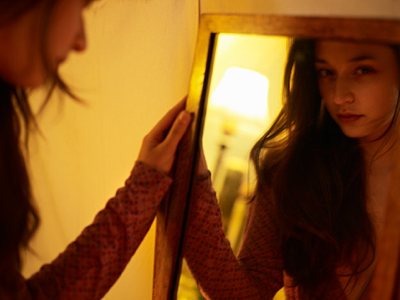I love of Being Me : Bisexual Woman
You know what guys, I’ve found an article about facing her identity and enjoying with it. Check it out!

“What will my friends say?”
“How will my family react?”
“Will I lose the community that I love being a part of?”
“Will people still listen to what I have to say?”
So many lesbian, gay, bisexual, transgender, queer and questioning youth grapple with these questions every day. I’ve been out, very publicly, as a lesbian since the beginning of high school. I started working with a local LGBT group, which eventually led to national anti-bullying campaigns with the documentary film Bully. All my advocacy has been based on me being an out-and-proud lesbian.
When I first came out, I struggled with the questions listed above. But my family and friends were so understanding and loving, and I was able to quickly accept my lesbian identity.
In the sixth grade I dated a boy. It’s what everyone was doing. I thought about that sixth-grade crush recently when I started falling for a guy. We had one class together, with several joint projects that allowed us to get to know each other. Eventually, through our conversations about morality and politics, I got lost in his blue eyes.
This shattered my world. I had always liked girls. I was a lesbian. But I knew that the feelings I had for this man were real when I felt my heart leap every time I walked into class and saw him. I had felt the same way about women in the past. It felt really backwards, and I was so confused. I didn’t identify as bisexual, but I liked a guy!
I didn’t want to tell anyone, because I still wasn’t sure what this meant. I’ve seen individuals discounted because they don’t fit into the traditional “gay” and “straight” boxes we have created. They often receive subtle but ultimately dismissive treatment from gay and lesbian people. People who identify as bisexual are often stereotyped as greedy, confused or promiscuous, not just by anti-LGBT activists but within our own community.
I’ve heard some of my gay and lesbian friends say things like, “Bisexuality isn’t real,” or, “He’s just gay and doesn’t know it yet,” or, “Bisexual girls are just straight,” or, “She was gay, and now she’s a traitor!” Comments like those made me afraid that I would lose my community and my friends if they knew I liked a guy.
I was scared that people would tell me that all the girls I dated were just a phase and that I “just hadn’t met the right guy.” I had worked so hard to earn acceptance for my gay identity from so many people in my life that I didn’t want to lose that. The work I had done in LGBT activism, my anti-bullying efforts — all of it would be discredited. I didn’t want people to stop listening to me just because of whom I happened to like.
I confided in a one gay friend about my crush. He responded, “You don’t really like him. You don’t actually want to date him. You just want to be his friend. You’ll never be as satisfied with him as you would be with a girl.” He told me that it was just a phase and would go away. No one had ever said that, even when I was dating girls. That really hurt to hear, especially coming from a friend. I thought only people outside the LGBT community would say that being a lesbian was just phase, but the most dismissive treatment I experienced came from some within my own community.
I’ve identified as a lesbian for a while now, and that identity has become a part of my life. When I think about my future, I think of myself with a woman. When I go out, I flirt and dance with other women. I notice cute girls when I walk down the street. So then why do I now feel uneasy about keeping the lesbian label? Is it because I dated a boy in the sixth grade and fell for another boy this many years later? Or maybe because others have such strict guidelines on sexual orientation? Do I feel uncomfortable identifying as bisexual because the majority of the time I like women?
Throughout my work in LGBT advocacy, my mentor taught me that one of the most effective ways to create change is to simply be yourself. I have come to realize that the best thing I can do is to talk about my life and experience with anyone who will listen. There are many people with similar stories. If we all share them, the kind of shame I experienced could cease to exist.
For now, I’m still unsure of what this means for my lesbian identity, but I will continue my work in LGBT activism. At this point, I’m OK with my identity developing and evolving. All I have to do is simply be OK with just being me.
Source: http://www.huffingtonpost.com/katy-butler/labled-from-the-outside-finding-an-identity-on-the-inside_b_3744903.html














0 Comments
You can be the first one to leave a comment.